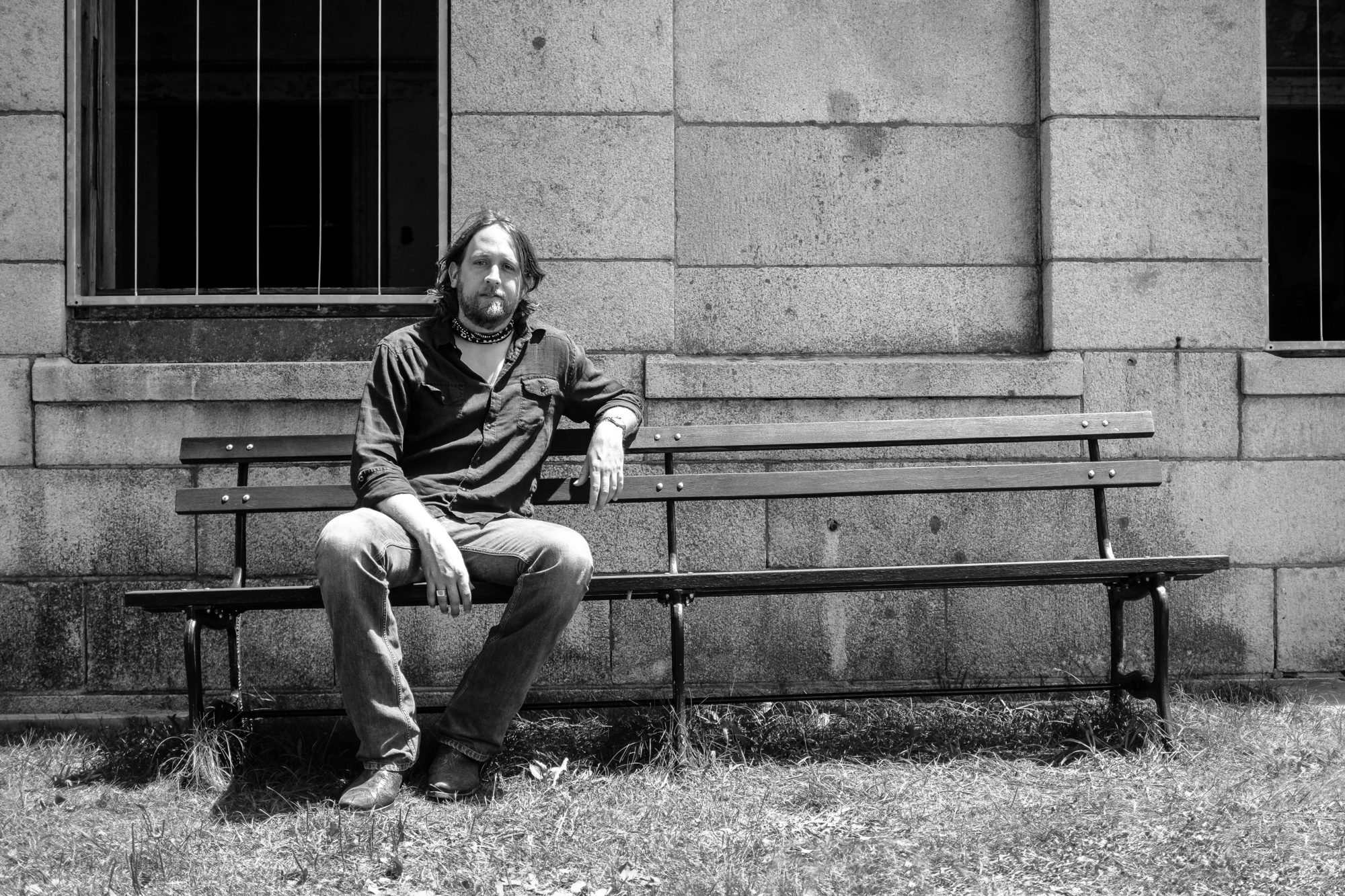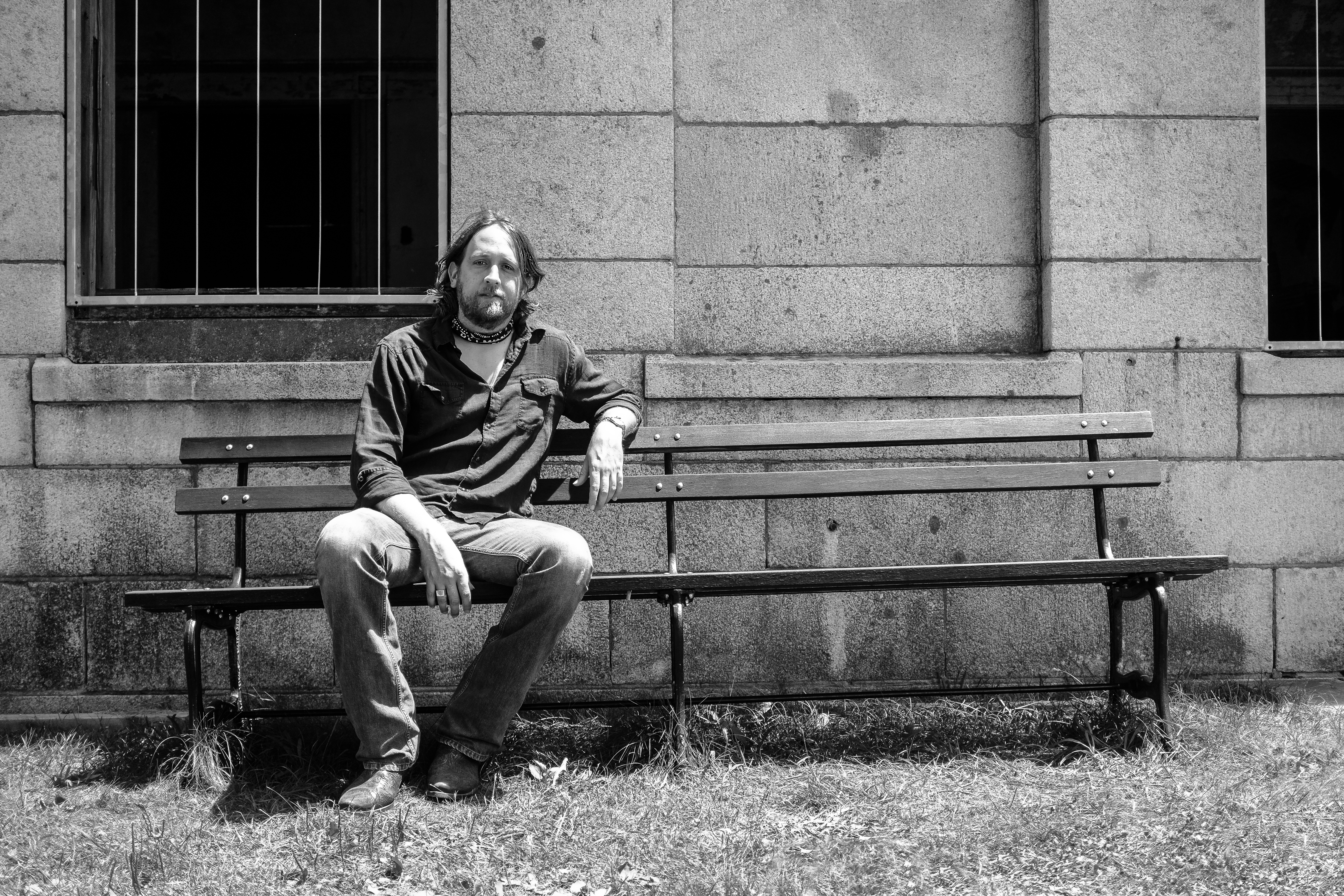Lovin’, Leavin’ & Looking Introspectively: An Interview With Hayes Carll at Newport Folk
I get to interview any different folk from a lot of different walks of life, but its the very rare occasion that I get to interview someone who has had a profound effect on me as an artist and musician. At Newport Folk Fest this past weekend I got the chance to interview Texas based songwriter Hayes Carll. He and his trio took to the stage on Sunday afternoon and played a set that blew me (and the rest of the crowd) away. By the last 10 minutes of his set the entire audience under the Harbor Stage was up, out of their seats and two stepping in the aisles to the self proclaimed “drunken poet’s” blend of storied folk songwriting and honky tonk twang. Hayes was on fire and with a mix of old favorites and some fresh new tracks from his latest “Lovers & Leavers” was one of the highlights of our weekend.
We got a chance to sit down with Carll to talk about the new record, co-writing songs like “The Magic Kid” with Darrell Scott and how things have changed in the music industry over his career.
Check it out….
RLR: So Lovers & Leavers has a bit of a different feel or vibe to it thematically speaking, I am sure you have gotten that over and over again. It seems to be a bit less “You like flowers and I like liquor” and a bit more intropective, serious and you have a song about your son “The Magic Kid”. Was that a conscious decision or was it a “this is where my life is right now and I NEED to write about this”?
Hayes: Yeah, it was a little of both. One, it was where my life was and my natural instinct was to kind of do what I had done and it just didn’t feel right. So I just kind of tried to tune into where I was and write about that, you know? I just turned 40 and things are different than when I was 25 so I thought it was going to come off as false and unsatisfying if I covered that up. So I figured “dig in and see what happens”.
RLR: A big part of Newport is this “community aspect”. Folks come back every year, even if they aren’t officially performing at the Festival. Cary Ann and Michael came back, obviously, and you played a few tunes with them in the Museum yestetrday.
Hayes: Yeah, Friday night we did a little show at the theatre and bunch of friends came and did cover songs with them. Then yesterday we did a set with them, Allison and I just played straight up songs.
RLR: So coming up, did you find a community or were you like a lone wolf doing your own thing? You were one of the earlier songwriters to be given this label of ‘Americana’ as it developed in this larger umbrella.
Hayes: Eh, you know I think its maybe more connected these days then when I first started, but I always had plenty of support. I felt like it was a brotherhood/sisterhood, a family of likeminded people and whether that was the Texas scene or out of Nashville…it was really all over. There were a lot of people into the same stuff I was. Whether it was Kristofferson or Prine or Dylan, they just enjoyed that songwriting and roots aspect. Just loved playing music. Even before it was labeled, we could spot each other. Even in wildly different genres, people have always been supportive if they like you and you like them, so we support each other. i was fortunate enough to meet a lot of people along the way, you know mentors and folks that have been on it for a long time and took me under their wing. Whether it was Todd Snider or a whole list of other people, and I met peers or folks younger than I was. Its always felt like there was a pretty good support group.
RLR: Musically, is there anything specific that you are digging into lately?
Hayes: I was listening to Cary Ann and Michael yesterday, they have always been one of my favorite bands but they have some new songs and I am really looking forward to that record coming out because it was pretty remarkable, the stuff that they were playing.
RLR: So, talking on co-writes, “The Magic Kid” was co-write with Darrel Scott, right? How do you typically approach a co-write? Do you bring the idea and let them pick it apart? Do you sit down and write together? Are you a fan of a co-write?
Hayes: (laughs) It depends. Yeah, I can be. It can be amazing and it can be really awkward and uncomfortable. Darrell is really my favorite guy to co-write with. He was one of the first guy’s I co-wrote with on my third record. I got three songs on this record with him. Its just always…we sit down and talk for a few hours and then we kind of stumble upon an idea in conversation and go with it. Its very organic and it feels very honest and real. But theres definitely times Ive gotten in a room and its too structured and formulaic and thats not as enjoyable. But yeah, its cool to get together with people and kind of bounce ideas off each other and you get someplace you wouldn’t have gotten on your own. It helps me get out of my own sort of set of habits and write from a different perspective. Which is good for me to look at things from a different point of view.
RLR: Flowers and Liquor came out in 2002, and in the grand scheme thats not too long ago, but a lot in the musical landscape has changed. From how records get made, to distribution to publicizing. Now a days any kid with a couple hundred bucks can buy an interface and a mic and make a record. Have you found that to be a good thing or a bad thing? Are you able to find new artists, or is the spectrum of what is out there filled with fluff? What do you think?
Hayes: Yeah, there is probably more stuff out there and I think things are better now in that you don’t have to have a label deal to get your music out. There is a lot of good stuff that never had a shot because of some of the hoops to had to jump through to get some kind of exposure. Now, in some way, maybe that culled some of the stuff and helped you find what was “good” but I like to think people can figure that out for themselves. Now they have the opportunity through the internet to hear a song and discover a new artist. There are just so many ways to find new music now that I think it is a positive thing. I am doing this record on Thirty Tigers and its a different format. So I own the record and I control the record and I run my own label basically, but I have support and infrastructure to do that. So for the artist there are a lot of benefits for being on a label but being able to do it on your own financially it can be a lot more rewarding and you have complete control over what you do and how you put out your record. Things are changing, so staying with the same system isn’t always the right thing to do, so its nice to have that flexibility to promote and market and get it out there however you see fit.


